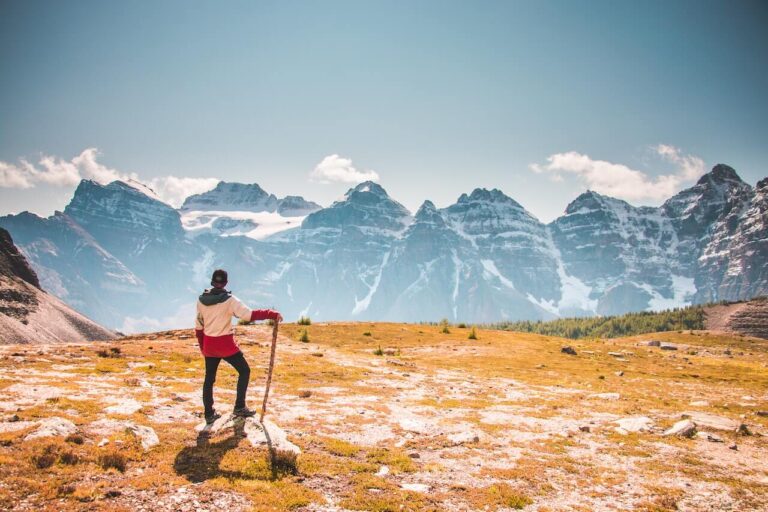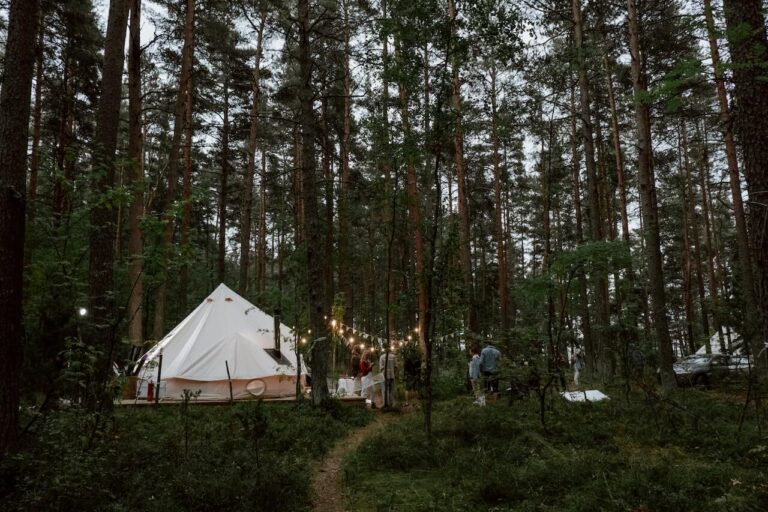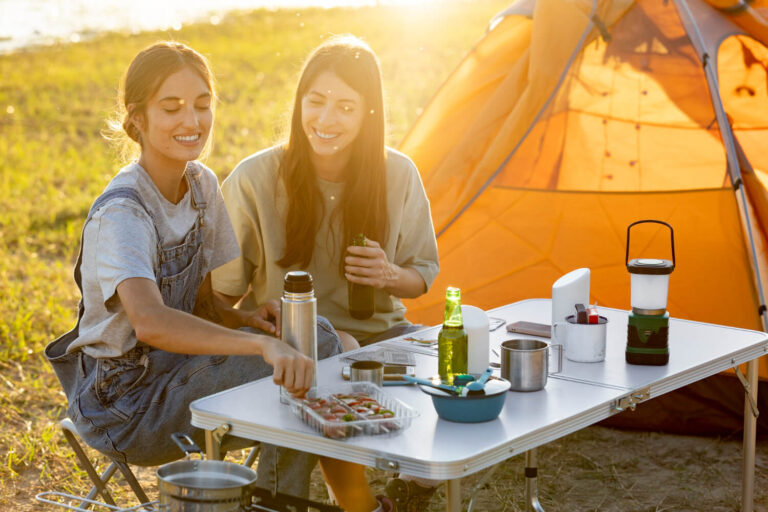
Introduction
Traveling solo in developing countries can be a life-changing experience. It’s an opportunity to step outside of your comfort zone, explore new cultures and ways of life, and challenge yourself in ways you never thought possible.
Why traveling solo in developing countries can be a Rewarding Experience
One reason is that it allows you to fully immerse yourself in the local culture. Traveling solo means that you don’t have the safety net of a tour group or a travel partner, so you’re forced to interact with locals and navigate the country on your own. This can lead to meaningful cultural exchanges and a deeper understanding of the destination you’re visiting.
Additionally, traveling solo in developing countries can be empowering. It’s an opportunity to test your independence, rely on your own instincts and decision-making skills, and push yourself outside of your comfort zone. This can lead to a greater sense of confidence and self-assurance that can have positive impacts on all aspects of your life.

Researching Your Destination
Researching your destination is an essential step in preparing for a solo trip to a developing country. Here are some key areas to focus on when conducting research:
Understanding the culture and customs of the country you are visiting:
Every country has its own unique culture and customs, and it’s important to familiarize yourself with them before you arrive. This can help you avoid cultural faux pas and make a positive impression on locals. You should research everything from dress codes to social customs to table manners so that you feel more comfortable interacting with locals. For example, in some countries, it may be considered rude to wear revealing clothing, while in others it may be a sign of respect to remove your shoes before entering someone’s home.
Learning about potential safety risks and how to avoid them:
Traveling solo in a developing country can present some unique safety risks, so it’s important to do your research and understand what these risks are. You should research the political climate, current events, and any areas or neighborhoods that may be unsafe for travelers. It’s also important to learn about common scams and how to avoid them, as well as how to navigate local transportation safely. For example, in some countries it may be safer to take a taxi rather than public transportation.
Planning your itinerary to make the most of your time:
Solo travel offers a lot of flexibility when it comes to planning your itinerary, but it’s still important to do some research in advance so that you can make the most of your time. This might include researching top tourist attractions, local events, and lesser-known sights off the beaten path. You should also consider the logistics of traveling solo, such as how to get from place to place and how to stay safe while doing so. Planning your itinerary in advance can help you make the most of your time and ensure that you don’t miss out on any must-see destinations or experiences.
By taking the time to research your destination in advance, you can feel more prepared and confident when traveling solo in a developing country. This can help you avoid potential safety risks, navigate cultural differences, and make the most of your time abroad.

10 developing countries you must visit
10 developing countries that are often recommended as must-visit destinations:
- Peru: Peru is located in South America and is famous for its ancient Inca city of Machu Picchu, one of the world’s most iconic archaeological sites. The country also boasts other fascinating ruins and natural attractions such as the Colca Canyon and Lake Titicaca.
- Vietnam: Vietnam is located in Southeast Asia and is known for its bustling cities, scenic countryside, and delicious cuisine. Some of its top attractions include the UNESCO World Heritage Site of Halong Bay, the ancient city of Hoi An, and the vibrant city of Ho Chi Minh.
- Morocco: Morocco is located in North Africa and is a vibrant country with colorful markets, stunning architecture, and rich cultural traditions. Some of its top attractions include the ancient city of Fez, the beautiful blue city of Chefchaouen, and the Sahara Desert.
- Sri Lanka: Sri Lanka is an island nation located in South Asia and is a tropical paradise with lush forests, pristine beaches, and fascinating cultural sites. Some of its top attractions include the ancient city of Sigiriya, the Temple of the Tooth in Kandy, and the beautiful beaches of Mirissa.
- Cambodia: Cambodia is located in Southeast Asia and is home to the ancient Angkor Wat temple complex and other stunning ruins. Other top attractions include the capital city of Phnom Penh, the beautiful beaches of Sihanoukville, and the Tonle Sap Lake.
- Kenya: Kenya is located in East Africa and is a wildlife lover’s paradise with amazing safari experiences and stunning landscapes. Some of its top attractions include the Maasai Mara National Reserve, Mount Kenya, and the beautiful beaches of Mombasa.
- Colombia: Colombia is located in South America and is a country with a fascinating history, vibrant cities, and breathtaking natural scenery. Some of its top attractions include the historic city of Cartagena, the coffee region, and the beautiful beaches of the Caribbean coast.
- India: India is located in South Asia and is a country with a rich cultural heritage, stunning architecture, and diverse landscapes. Some of its top attractions include the Taj Mahal, the Golden Temple in Amritsar, and the beautiful beaches of Goa.
- Nepal: Nepal is located in South Asia and is home to the world’s highest peaks, stunning temples, and vibrant culture. Some of its top attractions include Mount Everest, the Kathmandu Valley, and the birthplace of Lord Buddha at Lumbini.
- Indonesia: Indonesia is located in Southeast Asia and is a country with diverse landscapes, ancient temples, and some of the world’s most beautiful beaches. Some of its top attractions include Bali, the Borobudur temple complex, and the Komodo National Park.
Packing Essentials
Packing for a solo trip to a developing country requires careful consideration to ensure that you have everything you need without overpacking. Here are some packing essentials to keep in mind:
Choosing the right clothing and footwear for the climate and culture:
The climate and culture of your destination will play a big role in determining what you should pack. You should research the weather and temperature before you go, and pack accordingly. It’s also important to consider local customs and dress codes and pack clothing that is appropriate for the culture. For example, in some countries, it may be necessary to cover your shoulders and knees in certain places.
Packing a first aid kit and any necessary medications:
When traveling solo, it’s important to be prepared for any medical issues that may arise. You should pack a first aid kit with items like bandages, antiseptic wipes, and pain relief medication. It’s also a good idea to bring any necessary medications with you, as it may be difficult to find them locally.
Keeping your valuables safe and secure:
Traveling solo in a developing country can put you at risk for theft, so it’s important to keep your valuables safe and secure. You should consider investing in a quality travel backpack or purse with anti-theft features, such as slash-proof material and locking zippers. You should also keep your valuables close to your body at all times and avoid carrying large sums of cash or wearing expensive jewelry.
By packing the right essentials, you can ensure that you are prepared for your solo trip to a developing country. This can help you stay safe, comfortable, and prepared for any unexpected situations that may arise.

Importance of staying flexible and adaptable while traveling solo
One of the most important skills for a solo traveler is the ability to stay flexible and adaptable in the face of unexpected situations or changes in plans. Here are some reasons why flexibility and adaptability are crucial for solo travelers in developing countries:
- Dealing with unexpected situations: When traveling solo, you are solely responsible for handling unexpected situations like flight cancellations, missed connections, or changes in your itinerary. Being flexible and adaptable allows you to quickly adjust your plans and find alternative solutions when things don’t go according to plan.
- Navigating cultural differences: Cultural differences can be challenging to navigate, especially for solo travelers. Being flexible and adaptable allows you to approach these situations with an open mind and a willingness to learn, which can help you avoid misunderstandings or unintended offenses.
- Making the most of your experience: Traveling solo in a developing country can be an adventure, but it can also be overwhelming at times. Being flexible and adaptable allows you to adjust your plans and take advantage of unexpected opportunities, like attending a local festival or meeting a new friend, which can make your experience even more memorable.
- Staying safe: Safety is always a concern for solo travelers, especially in developing countries where the infrastructure and resources may be limited. Being flexible and adaptable allows you to quickly adjust your plans if you find yourself in an unsafe situation or if conditions change unexpectedly.
- Building resilience: Traveling solo in a developing country can be a challenging and sometimes uncomfortable experience, but it can also be an opportunity to build resilience and develop new skills. Being flexible and adaptable allows you to embrace challenges and grow as a person, which can have a positive impact on your life beyond your travels.
In summary, staying flexible and adaptable is crucial for solo travelers in developing countries. By embracing the unexpected and approaching new experiences with an open mind, you can make the most of your journey and create memories that will last a lifetime.
Budgeting for transportation and travel expenses
Budgeting for transportation and travel expenses is a crucial aspect of solo travel in developing countries. It is important to research and plan ahead to avoid overspending and ensure that you have enough money to cover your expenses throughout your trip. Here are some tips for budgeting your transportation and travel expenses:
- Research transportation options: Look into various modes of transportation available in the country you are visiting such as buses, trains, taxis, and local ridesharing services. Research the cost of each option and determine which one is the most affordable and convenient for your needs.
- Set a daily travel budget: Determine how much money you can afford to spend on transportation and travel expenses each day. This can include things like food, accommodation, entrance fees, and souvenirs.
- Use public transportation: Opting for public transportation instead of taxis or ridesharing services can save you a significant amount of money. Consider purchasing a weekly or monthly pass if available to save even more.
- Walk or bike: Walking or biking can be a great way to explore a new city while saving money on transportation costs. Consider renting a bike or taking a walking tour to explore the local area.
- Plan ahead for tours and activities: Research and book tours and activities ahead of time to take advantage of discounts and avoid last-minute price hikes. Look for free or low-cost activities to add to your itinerary.
- Keep track of your expenses: Use a travel budget app or keep a spreadsheet to track your expenses and make sure you are staying within your budget.
By taking the time to research transportation options and setting a daily travel budget, you can ensure that you have enough money to cover your expenses while still enjoying your solo travel experience in developing countries.

Staying Safe While Traveling
Traveling solo in a developing country can be an amazing experience, but it’s important to take precautions to stay safe. Here are some tips for staying safe while traveling:
Tips for staying safe on public transportation:
Public transportation can be a convenient and affordable way to get around in a developing country, but it can also be a target for thieves and pickpockets. You should always be aware of your surroundings and keep an eye on your belongings. It’s also a good idea to avoid traveling alone at night or in areas that are known to be unsafe.
Strategies for avoiding theft and scams:
Theft and scams are common risks when traveling in developing countries. You should be cautious of strangers who approach you, especially if they seem overly friendly or helpful. It’s also important to keep your valuables out of sight and be aware of your surroundings at all times. Avoid flashing large amounts of cash or expensive jewelry, and consider using a money belt to keep your money and documents safe.
Advice for staying safe at night and in unfamiliar areas:
Nighttime can be a vulnerable time for solo travelers, especially in unfamiliar areas. You should avoid walking alone at night and stay in well-lit areas with other people around. It’s also a good idea to let someone know where you’re going and when you expect to return. Consider taking a taxi or rideshare service to get around at night, and make sure the vehicle is licensed and legitimate.
By following these safety tips, you can reduce your risk of encountering problems while traveling solo in a developing country. It’s important to stay vigilant and aware of your surroundings at all times, but don’t let safety concerns prevent you from experiencing all the amazing things that traveling has to offer.

Connecting with Locals
One of the best ways to truly experience a new culture is by connecting with locals. Here are some tips for meeting and connecting with locals in a safe and respectful way:
• Take a language class: One of the best ways to connect with locals is by speaking their language. Consider taking a language class before your trip to help you communicate with locals and understand their culture.
• Stay in local accommodations: Instead of staying in a chain hotel, consider booking a local guesthouse or homestay. This will give you the opportunity to meet and interact with locals on a more personal level.
• Attend cultural events: Check out local festivals, concerts, and events to experience the culture and meet locals who share your interests.
• Join a tour: Joining a guided tour led by a local can be a great way to learn about the culture and make new connections.
• Volunteer: Volunteering with a local organization is not only a great way to give back to the community, but it also provides an opportunity to connect with locals and learn from their perspectives.
When connecting with locals, it’s important to be respectful and open-minded. Remember that you are a guest in their country and should be willing to learn about their culture and customs. By making local connections, you can gain a deeper understanding of the country you’re visiting and create lasting memories.

Solo Female Travel
Women traveling solo in developing countries face unique safety considerations. Here are some tips for staying safe and avoiding harassment or unwanted attention:
• Dress appropriately: Dressing modestly can help you blend in and avoid unwanted attention. Research the local dress customs before your trip and pack accordingly.
• Be aware of your surroundings: Pay attention to your surroundings and trust your instincts. Avoid traveling alone at night and be cautious in unfamiliar areas.
• Use technology to your advantage: Consider using a GPS tracking app or sharing your location with a trusted friend or family member.
• Connect with other women travelers: Join online groups or forums for women travelers to connect with other solo female travelers and gain advice and support.
• Learn self-defense: Consider taking a self-defense class before your trip to learn how to protect yourself in dangerous situations.
• Research local laws and customs: Laws and customs related to women’s safety can vary widely by country. Research these before your trip to avoid any misunderstandings or cultural faux pas.
While traveling solo as a woman in a developing country can be intimidating, it’s important to remember that it can also be a rewarding and transformative experience. By taking precautions and being aware of your surroundings, you can stay safe and enjoy all that the country has to offer.
Conclusion
In conclusion, traveling solo in developing countries can be an incredibly rewarding and transformative experience. By following the tips outlined in this article, you can stay safe, avoid common pitfalls, and connect with locals in a meaningful way.
To recap, the importance of researching your destination, packing appropriately, staying safe while traveling, connecting with locals, and understanding unique safety considerations for solo female travelers are all crucial components of a successful solo adventure in a developing country.
While it may be intimidating to embark on a solo trip to a foreign country, the benefits of doing so are numerous. You’ll have the opportunity to learn about new cultures, challenge yourself, and gain a new perspective on the world.
So don’t be afraid to take the leap and embark on your own solo adventure in a developing country. With proper planning and precautions, it can be one of the most rewarding experiences of your life.
Read more articles here.





